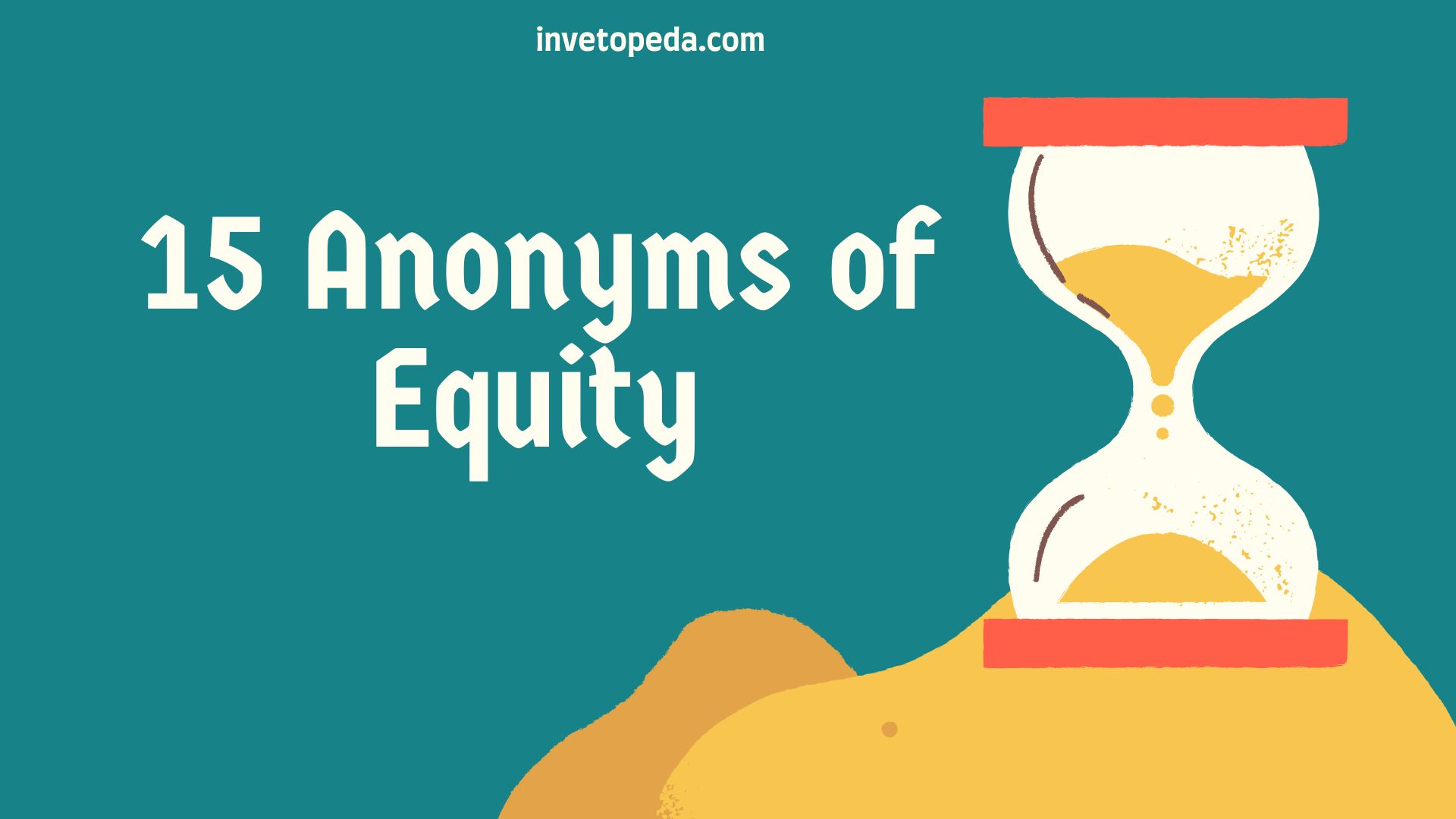Introduction
Equity isn’t just an euphemism; it’s a fundamental concept that is a part of economics, law ed, education, as well as social justice.It is about creating a situation where people feel and have what they need to be able to achieve their goals and of not treating everyone in the same way. But, in order to understand what true value an equity is, its disadvantages should be well understood. In this post, we look at fifteen powerful antinomyms for equity, which each represents the obstacle to fairness or justice.
Let’s explore the words which stand out in stark against equity and the reasons the reasons why they are important.
1. Unfairness
Defined: The lack of fairness in treating others unfairly or unjustly.
Definition: Unfairness is perhaps the simplest antonym for equity. While equity ensures that all individuals are treated with justice and balance, unfairness undermines this by favouring some while neglecting others–intentionally or otherwise.
Example: When two employees are equally dedicated, but only one of them is acknowledged as the best, it’s unjust.
2. Inequity
Defined: Lack of justice or fairness of treatment, opportunity or allocation of resources.
Definition: Inequity occurs when individuals are discriminated against by factors that include race and income, gender or geography. Equity seeks to eliminate these gaps, while inequity strengthens these disparities.
Example: When children in areas with less wealth have schools that are not as good, it’s considered inequality.
3. Bias
Definition: A tendency to favour one group, individual or notion over others, usually with no rational basis.
Definition: Bias leads to distortions in decision-making, whether conscious or subconscious. It is a threat to the impartiality equity seeks to achieve.
Example: A hiring manager always choosing male applicants even though they have equal qualifications shows discrimination based on gender.
4. Discrimination
The definition of HTML0 is the Unjust treatment of persons based on certain characteristics, like race, gender, age, disability or even age.
Definition: Discrimination is institutionalized inequity. It hinders individuals from having the same resources and rights. This is in direct contradiction to the principle of fairness.
Examples: Not allowing women to be considered for specific jobs is a type of discrimination based on gender.
5. Favoritism
Definition: Giving unfair advantages to an individual or group in accordance with personal preferences.
Explanation: Favoritism skews outcomes by favouring those who might not be entitled to particular preferences. Contrary to equity, which concerns fairness, favouritism is more about personal profit.
Examples: Promoting someone based on friendship, not merit, can be considered favouritism.
6. Partiality
Definition: An unfair bias against one particular side or individual over the other.
Description: Partiality undermines the fairness and impartiality that equity requires. The issue is often a part of the workplace, school, as well as legal system.
Examples: A teacher giving more marks to students they enjoy is an indication of partiality.
7. Injustice
Defined: A situation in which the rights of an individual or a group are not taken into consideration or breached.
Definition: Injustice is the disintegration of equity. If systems do not be fair to individuals in fairness, injustice can become a hindrance towards progress and harmony.
Examples: Wrongful imprisonment due to discrimination based on race is an inhumane unfairness.
8. Prejudice
Defined: Preconceived opinions or opinions, usually built on stereotypes and not real-life experiences.
Definition: Prejudice distorts perception and judgement. It hinders fair assessment and can be a major cause of discrimination and unfairness.
Example: Assuming someone is not trustworthy due to their appearance, it is a prejudiced action.
9. Disparity
Definition: A significant difference or disparity in the treatments, conditions or opportunities.
Explaination: Disparities in income health, education and income can be a sign of deeper inequality. These indicate that some groups are consistently receiving less.
Example: Racial disparities in the delivery of healthcare to mothers are documented across a variety of countries.
10. Unjustness
Defined: The quality or the state of being unfair or morally incorrect.
Description: Unjustness refers to all systems and acts which do not meet the moral standards for fairness. An umbrella phrase, it covers a whole multitude of injustices.
Example: In the system, this is a symbol of injustice by enforcing harder punishments to marginalized people.
11. Unequal Access
Definition: When people do not have the same opportunity to profit from the services or infrastructure.
Definition: Equity ensures access depending on the needs. Inequal access means that some are flourishing while others fall in the dust.
Example: Students in rural areas that do not have internet access are faced with education inequalities.
12. Oppression
Defined: Prolonged cruel or inhumane treatment, especially by the people in power.
Definition: Oppression sustains injustice as time passes and systematically denies equality to whole people or groups.
Example: Laws that restrict minorities’ rights can be considered as examples of oppression by institutions.
13. Exclusion
Definition: The act of exclusion of someone in a deliberate or non-intentional manner from opportunities, rights or opportunities.
Description: Exclusion contradicts equity’s need for inclusivity. The excluded are unable to take full advantage of the society they live in.
Example: Failing to include disabled workers in workplace planning will result in the exclusion of them.
14. Imbalance
Defined: A situation in the sense that things don’t occur equally or in fair proportions.
Definition: Imbalance exists when power, resources, or representation is distributed in a way that is uneven and results in unreliable outcomes.
Example: A leadership team that isn’t diverse reflects a lack of diversity in an organization.
15. Neglect
Definition: Failing to care for or pay proper care to someone or something that needs support.
Definition: Equity involves recognizing the different degrees of needs. We neglect the people who need extra help.
Example: Ignoring mental health at low-income schools is a type of social inattention.
Why These Antonyms Matter
Knowing these terms isn’t simply a study in academics but the ultimate moral obligation. Each term reveals the consequences of equity when it is not present or even denied. Understanding bias, injustice, and injustice in our daily lives can help us actively
- Contest systems that perpetuate inequality
- Promote inclusive policies
- Help marginalized communities
- Inspire justice both in your professional and personal lives
From classrooms and boardrooms to courts to healthcare clinics, these analogies show us the actual impacts of ignoring equity.
Conclusion: Equity Requires Action
Equity isn’t merely a notion but an obligation. It’s about removing the mental models and systems that are described in the antonyms below. If you’re an educator, business, policymaker, or even a person of the public, working for equitable outcomes requires you to make daily choices which either promote justice or allow for inequity.
The 15 synonyms in this list reveal the hazards of inequality as well as unfairness. When we know the concept of equity we can better build environments that respect every person.
Don’t just talk about equity but fight for it, encourage it and live our lives by this principle–every day. Learn more: 15 Ways to Express ‘Low Self Esteem’ Without Using the Term

